
Detour is a 1945 American independent film noir directed by Edgar G. Ulmer, and starring Tom Neal and Ann Savage. The screenplay was adapted by Martin Goldsmith and an uncredited Martin Mooney from Goldsmith's 1939 novel of the same title, and released by the Producers Releasing Corporation, one of the so-called Poverty Row film studios in mid-20th-century Hollywood.
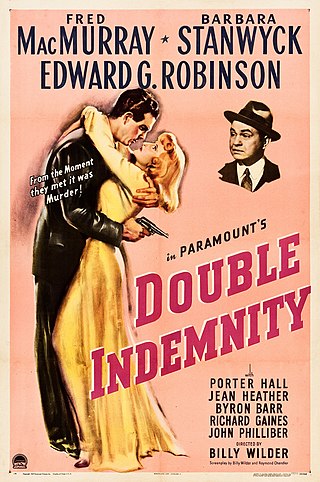
Double Indemnity is a 1944 American film noir directed by Billy Wilder and produced by Buddy DeSylva and Joseph Sistrom. Wilder and Raymond Chandler adapted the screenplay from James M. Cain's novel of the same name, which ran as an eight-part serial in Liberty magazine in 1936.
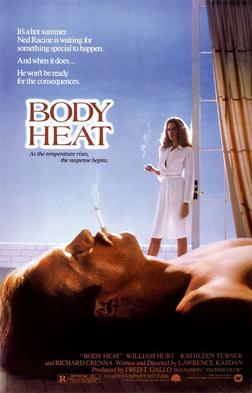
Body Heat is a 1981 American neo-noir erotic thriller film written and directed by Lawrence Kasdan in his directorial debut. It stars William Hurt and Kathleen Turner, featuring Richard Crenna, Ted Danson, J. A. Preston and Mickey Rourke. The film was inspired by the classic film noir Double Indemnity (1944), in turn based on the 1943 novel of the same name.

Ann Savage was an American film and television actress. She is best remembered as the greedy cigarette-puffing femme fatale in the critically acclaimed film noir Detour (1945). She was featured in more than 20 B movies between 1943 and 1946.

The Narrow Margin is a 1952 American film noir starring Charles McGraw and Marie Windsor. Directed by Richard Fleischer, the RKO picture was written by Earl Felton, based on an unpublished story written by Martin Goldsmith and Jack Leonard. The screenplay by Earl Felton was nominated for an Academy Award.

Producers Releasing Corporation was the smallest and least prestigious of the 11 Hollywood film companies of the 1940s. It was considered a prime example of what was called "Poverty Row": a low-rent stretch of Gower Street in Hollywood where shoestring film producers based their operations. However, PRC was more substantial than the usual independent companies that made only a few low-budget movies and then disappeared. PRC was an actual Hollywood studio – albeit the smallest – with its own production facilities and distribution network, and it even accepted imports from the UK. PRC lasted from 1939 to 1947, churning out low-budget B movies for the lower half of a double bill or the upper half of a neighborhood theater showing second-run films. The studio was originally located at 1440 N. Gower St. from 1936 to 1943. PRC then occupied the former Grand National Pictures physical plant at 7324 Santa Monica Blvd., from 1943 to 1947. This address is now an apartment complex.

Edgar Georg Ulmer was an Austrian film director who worked mainly in Hollywood B movies and other low-budget productions, eventually earning the epithet 'The King of PRC', due to his extremely prolific output for the Poverty Row studios. His stylish and eccentric works came to be appreciated by auteur theory-espousing film critics in the years following his retirement. Ulmer's most famous productions include the horror film The Black Cat (1934) and the film noir Detour (1945).

The Blue Gardenia is a 1953 American film noir starring Anne Baxter, Richard Conte, and Ann Sothern. Directed by Fritz Lang from a screenplay by Charles Hoffman, it is based on the novella The Gardenia by Vera Caspary.

The Strange Love of Martha Ivers is a 1946 American noir tragedy film directed by Lewis Milestone and starring Barbara Stanwyck, Van Heflin and Lizabeth Scott. Kirk Douglas appears in his film debut. It follows a man who is reunited with his childhood friend and her husband; both the childhood friend and her husband believe that the man knows the truth about the mysterious death of the woman's wealthy aunt years prior. The screenplay was written by Robert Rossen, adapted from the short story "Love Lies Bleeding" by playwright John Patrick.
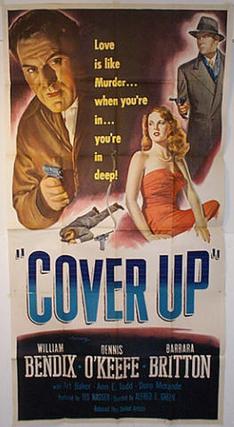
Cover Up is a 1949 American film noir mystery film directed by Alfred E. Green starring Dennis O'Keefe, William Bendix and Barbara Britton. O'Keefe also co-wrote the screenplay, credited as Jonathan Rix. The murder mystery takes place during the Christmas season.
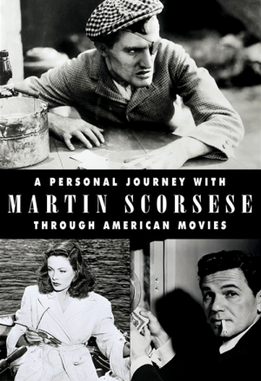
A Personal Journey with Martin Scorsese Through American Movies is a 1995 British documentary film of 225 minutes in length, presented by Martin Scorsese and produced by the British Film Institute.
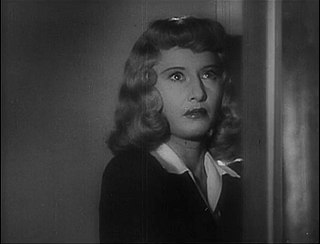
Phyllis Dietrichson is a fictional character in the book and two film adaptations of James M. Cain's novella Double Indemnity. For the 1944 film of the same name, Barbara Stanwyck was nominated for the Academy Award for Best Actress. The character is considered one of the best femme fatale roles in film noir history. The character was ranked as the #8 film villain of the first 100 years of American cinema by the American Film Institute in the AFI's 100 Years... 100 Heroes and Villains.
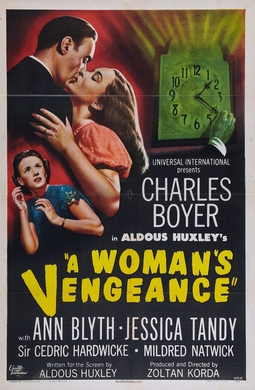
A Woman's Vengeance is a 1948 American film noir drama mystery film directed by Zoltán Korda and starring Charles Boyer, Ann Blyth, Jessica Tandy, Cedric Hardwicke, Rachel Kempson, and Mildred Natwick. The screenplay by Aldous Huxley was based on his 1922 novelette The Gioconda Smile. The film was produced and released by Universal Pictures.
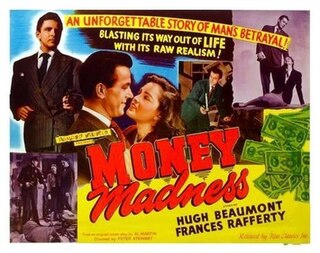
Money Madness is a 1948 film noir mystery film directed by Sam Newfield starring Hugh Beaumont and Frances Rafferty.

Blonde Ice is a 1948 American crime film noir starring Leslie Brooks, Robert Paige, and Michael Whalen. Based on the 1938 novel Once Too Often by Elwyn Whitman Chambers, the B picture was directed by Jack Bernhard, with music by Irving Gertz.
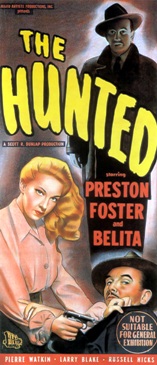
The Hunted is a 1948 American film noir crime film starring Preston Foster, Belita, Pierre Watkin and Edna Holland. It was directed by Jack Bernhard.

Club Havana is a 1945 American film drama directed by Edgar G. Ulmer. It was produced and released by independent film company Producers Releasing Corporation. It has been compared to the 1933 film Grand Hotel.

Second Chance is a 1947 American film noir crime film directed by James Tinling and written by Arnold Belgard. The film stars Kent Taylor, Louise Currie, Dennis Hoey, Larry J. Blake, Ann Doran and John Eldredge. The film was released on July 18, 1947, by 20th Century Fox.

Pier 23 is a 1951 American crime film directed by William Berke and starring Hugh Beaumont, Ann Savage and Edward Brophy. It was distributed by the independent Lippert Pictures as a second feature intended for television as well as the cinema.



















